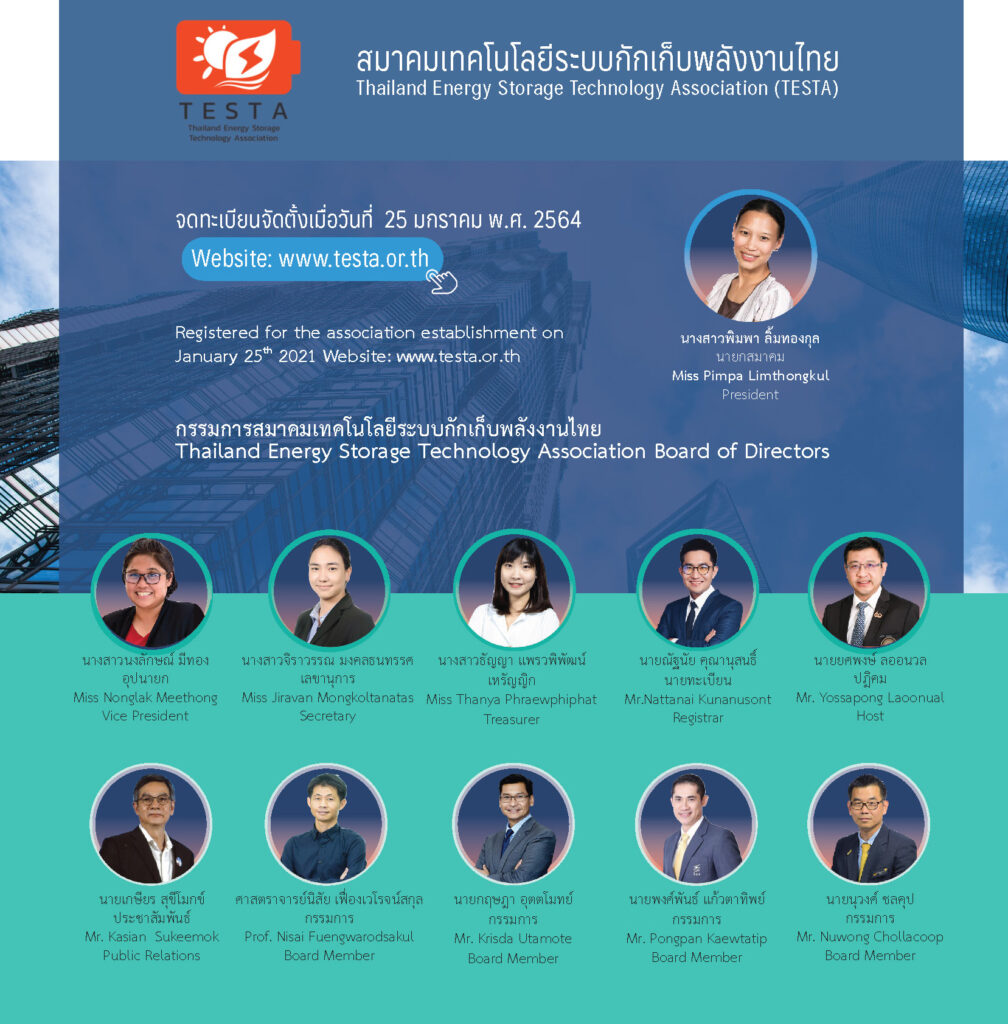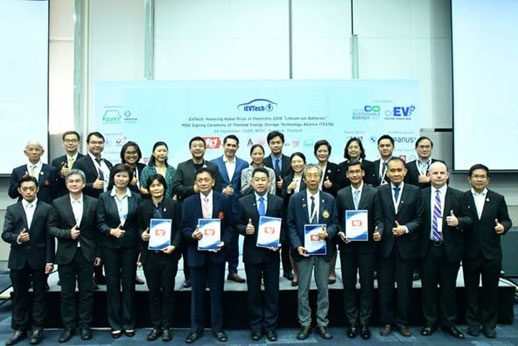
Worldwide awareness of global warming and climate change has raised concern regarding carbon dioxide emissions which are the primary driver of the rise in global average temperature. A host of countries have pledged net-zero carbon dioxide emissions.
The National Energy Policy Council (NEPC) has endorsed the National Energy Plan on August 4th, 2021 which has one main target aiming for net-zero carbon dioxide emissions during 2065-2070. One of the planning frameworks is to promote green energy investment, which includes (a) increase the proportion of renewable energy generation to be at least 50% (b) regulate the energy usage of transportation sector to be green energy via electric vehicle (EV) according to the 30@30 Policy (30% within year 2030) (c) increase energy efficiency to above 30% via technology and modern innovative energy management (d) restructure the energy sector to follow the energy transition trend according to 4D1E (Decarbonization, Digitalization, Decentralization, Deregulation and Electrification)
Since 2015, Thai government has actively supported automotive industry by promoting the usage plan of 1.2 million EV within 2036. The EV industry is thus a “new industry” with promising potential to drive the whole country’s economy. The National Electric Vehicle Policy Committee, set up by the Thai government on February 7th, 2020, has a masterplan that by 2030, 30% of local production will be electric vehicles of all types or about 750,000 units. (Roadmap: Thailand Smart Mobility 30@30) The plan has 3-step actions as follows:
- Short term plan (2020-2022): government vehicle, public bus, public electric motorcycle and private car, totaling 60,000-110,000 units
- Intermediate term plan (2021-2025): Eco EV and Smart City Bus, totaling 250,000 units
- Long term plan (2030): Electric vehicle, totaling 750,000 units
Roadmap Plan: Thailand Smart Mobility 30@30 aims to lessen carbon dioxide emissions and air pollutions, and to be a sustainable solution for PM2.5 problem.
The establishment of Thailand Energy Storage Technology Association (TESTA) is a step forward in driving and promoting the country’s energy plan and making Thailand an electric vehicle hub. The undertaking entails the development of energy storage technology, both at research and industrial level, to support the transition in energy and EV industry and the creation of a complete ecosystem of clean energy and electric vehicles which meets the goal of becoming a clean energy society.
Significance
Thailand Energy Storage Technology Association was originally set up as Thailand Energy Storage Technology Alliance by energy storage technology enthusiasts from both academia and public sectors. Five founding members are National Science and Technology Development Agency (NSTDA), Khon Kaen University (KKU), King Mongkut’s University of Technology Thonburi (KMUTT), King Mongkut’s University of Technology North Bangkok (KMUTNB), and Electric Vehicle Association of Thailand (EVAT). The alliance aims to help connect stakeholders, promote understanding and nurture technological advancement on energy storage technology in Thailand. On January 25th, 2021, the alliance was officially transformed and registered as Thailand Energy Storage Technology Association – TESTA
Vision: A leading organization that faciliatates networking and collaboration between local and international researchers, public and private research organizations, academia, and entrepreneurs on energy storage technologies in ASEAN.
Mission:
- Promote research and development of affordable and sustainable energy storage technologies for clean and efficient power system and EV in Thailand.
- Create linkage between energy storage technologies researchers/developers and producers/users.
- Provide analysis report on energy storage system technologies to all stakeholders, including decision makers, business leaders and country’s policymakers and provide information to the general public

Thailand Energy Storage Technology Alliance September 24th, 2020
Applications/Impacts
The collaboration of academia and industrial members under TESTA help drive the country towards becoming Thailand electric vehicle hub, resulting in benefits and impacts as follows.
1) TESTA helps initiate and promote research and development collaboration in energy storage technology, specifically for electrical systems and electric vehicles in Thailand.
2) TESTA acts as an open platform connecting energy storage technology research and development sectors and manufacturing sectors.
3) TESTA provides information on energy storage system to the general public, stakeholders, industries, business, and policy makers.
4) TESTA supports new products development, throughout the value chain, for energy storage systems so that Thailand will be ready for global competition.
